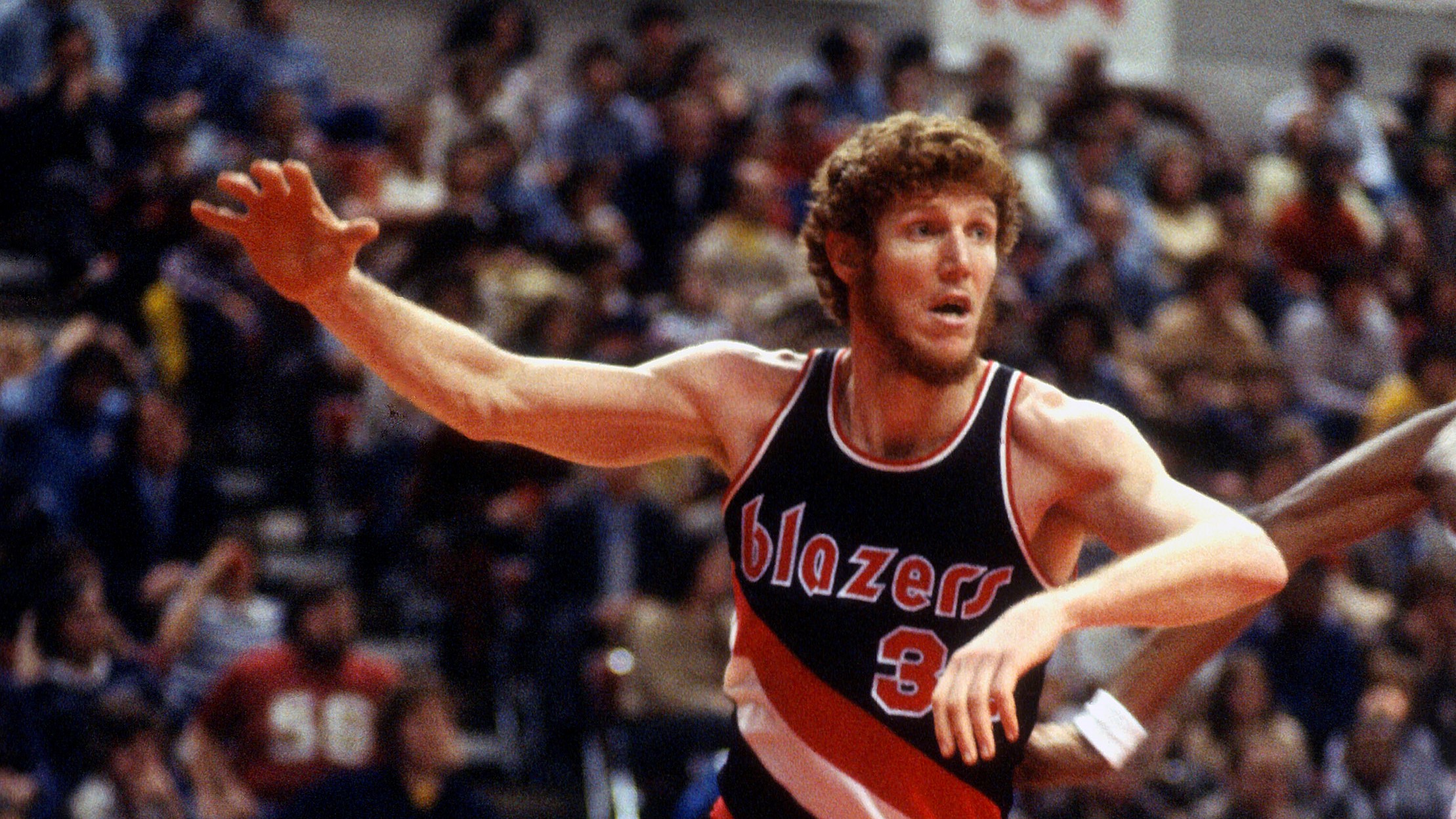
Bill Walton of the Portland Trail Blazers in the game against the New Jersey Nets at the Rutgers Athletic Center in Piscataway, New Jersey, 1977. /VCG
Bill Walton of the Portland Trail Blazers in the game against the New Jersey Nets at the Rutgers Athletic Center in Piscataway, New Jersey, 1977. /VCG
In 1996, the NBA named the Top 50 players in the league's history. Among them was Bill Walton, who probably had the most unique career of everyone on the list.
Walton played 10 seasons in the NBA, which was a short stint for a super star even at the time. He only played around 40 percent of games and appeared just four times in the playoffs. In 1978, he played only two games and came off the bench in 1986 and 1987.
If Walton's career can be summed up in one word, it must be: injury. He broke his ankle, legs, feet and underwent surgery on his knees in high-school.
After he entered the University of California, Los Angeles (UCLA), Walton suffered tendinitis and back problems. During his NBA career, sprained ankles, broken wrists, finger dislocations were already petty problems. In 1978 and 1979 Walton broke the navicular bone below his left ankle twice. He rested for two years after the second strike.
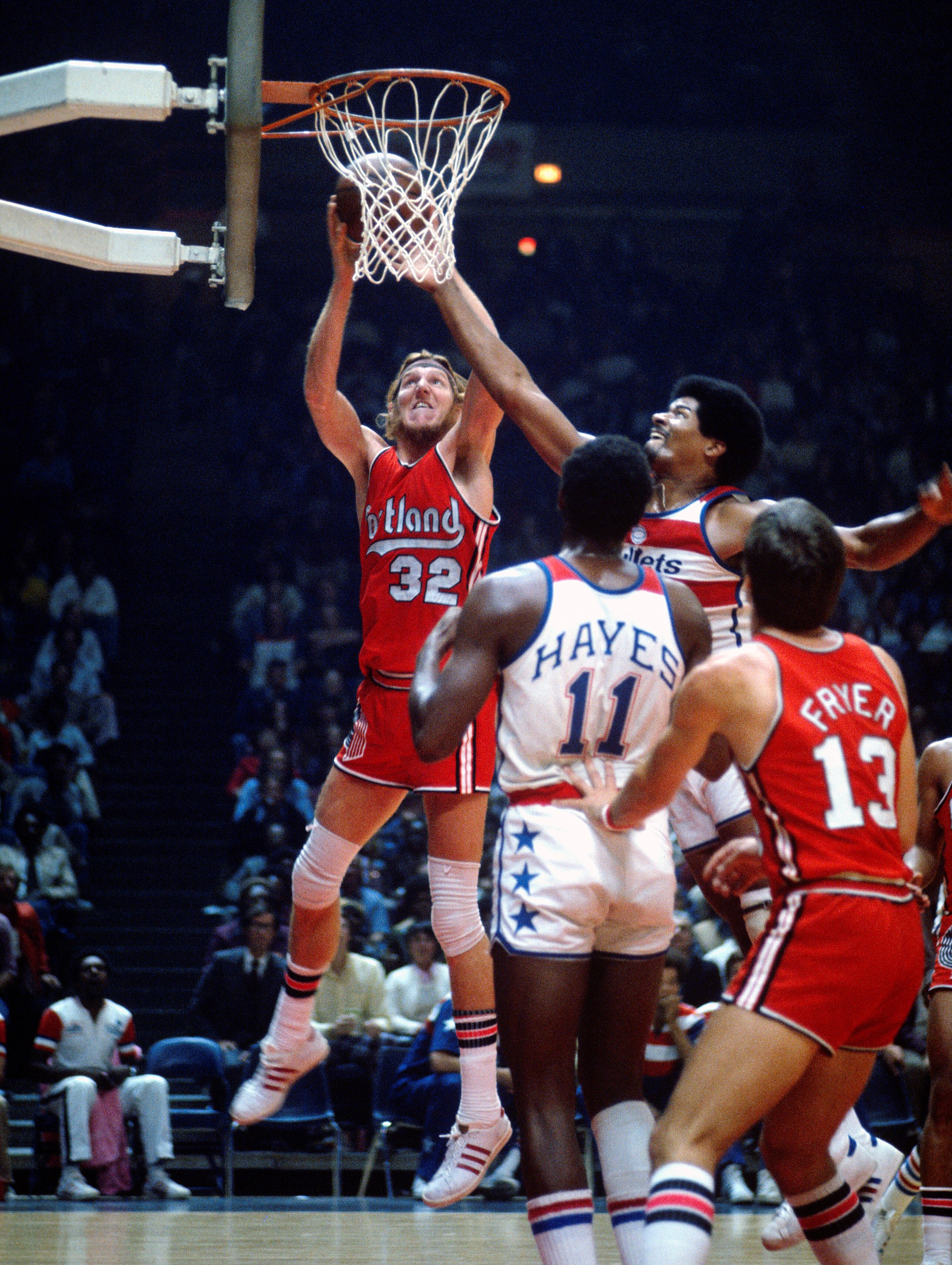
Bill Walton #32 of the Portland Trail Blazers grabs a rebound in the game against the Washington Bullets at the Capital Center in Landover, Maryland, 1975. /VCG
Bill Walton #32 of the Portland Trail Blazers grabs a rebound in the game against the Washington Bullets at the Capital Center in Landover, Maryland, 1975. /VCG
One can almost write a book entitled "Injuries that you can and cannot imagine a basketball player has suffered" about Walton.
But he was such a rebellious guy that his coach in UCLA, John Wooden, is on record as saying: "I had no problem with him during the season. Off the floor I worried. I worried when he was thrown in jail with the group that took over the administration building, I worried when he stopped traffic on Wilshire Boulevard, and when he interrupted classes giving his views on the Vietnam War."
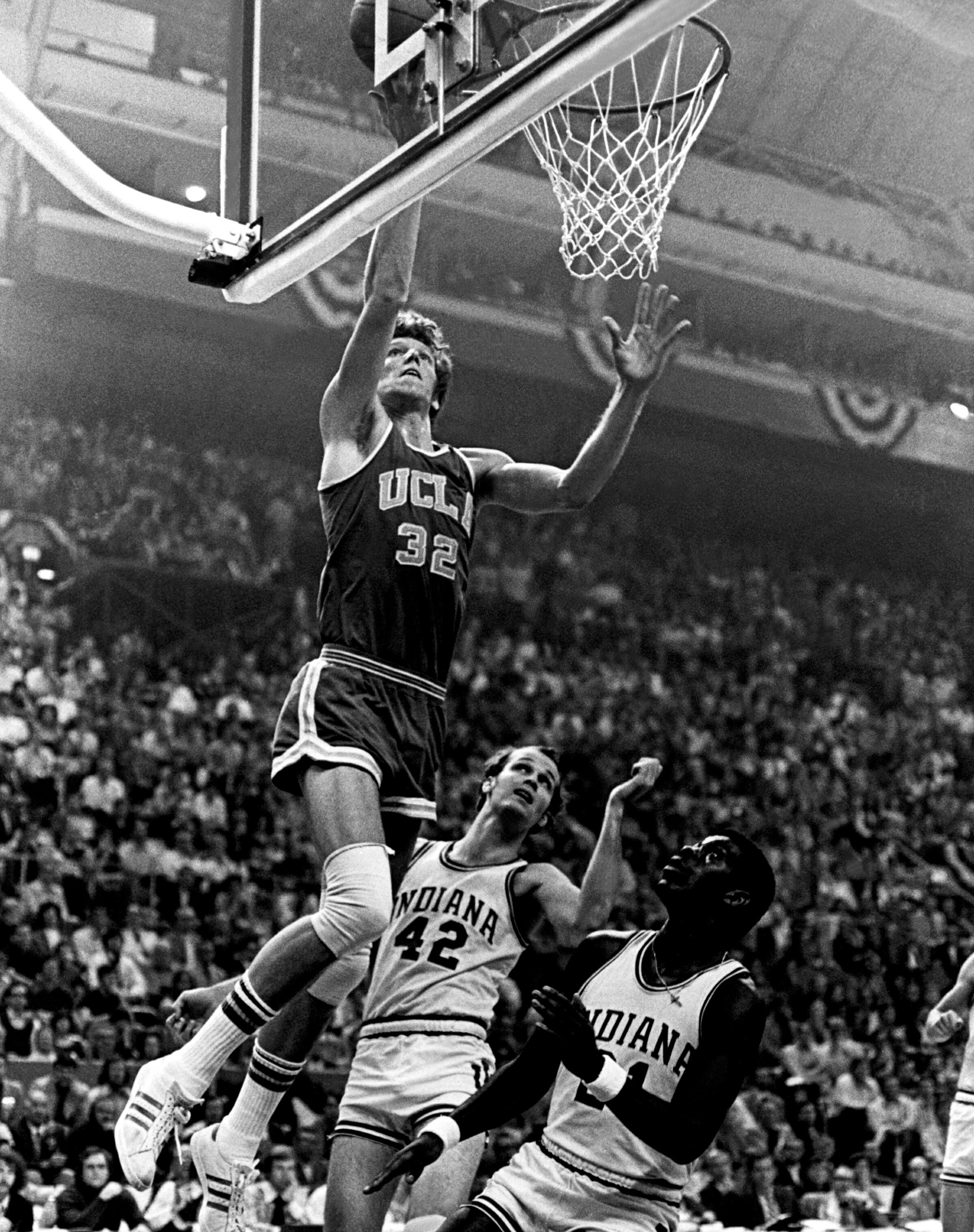
Bill Walton #32 of UCLA makes a layup in the NCAA Final against Memphis State at St. Louis Arena in St. Louis, Missouri, March 26, 1973. /VCG
Bill Walton #32 of UCLA makes a layup in the NCAA Final against Memphis State at St. Louis Arena in St. Louis, Missouri, March 26, 1973. /VCG
However, when Waldon played, he owned the court. In 1969 and 1970, he led Helix High School to win two straight championships with a 33-0 record while averaging 29 points and 25 rebounds. In the 1973 NCAA Final, Walton was 22-21 in field goals to drop 44 points, helping UCLA beat Memphis State.
In the first seven games of his rookie season, Walton could put down 16 points, 19 rebounds, 4.4 assists and four blocks before he was carried off the court on a stretcher. In the 1976-77 season, Walton managed to play 65 games and became the league's rebounding (14.4), blocking (3.2) leader. Meanwhile, the Trail Blazers raised their record from previous season's 32-50 to 49-33, the first time they had reached 40+wins.
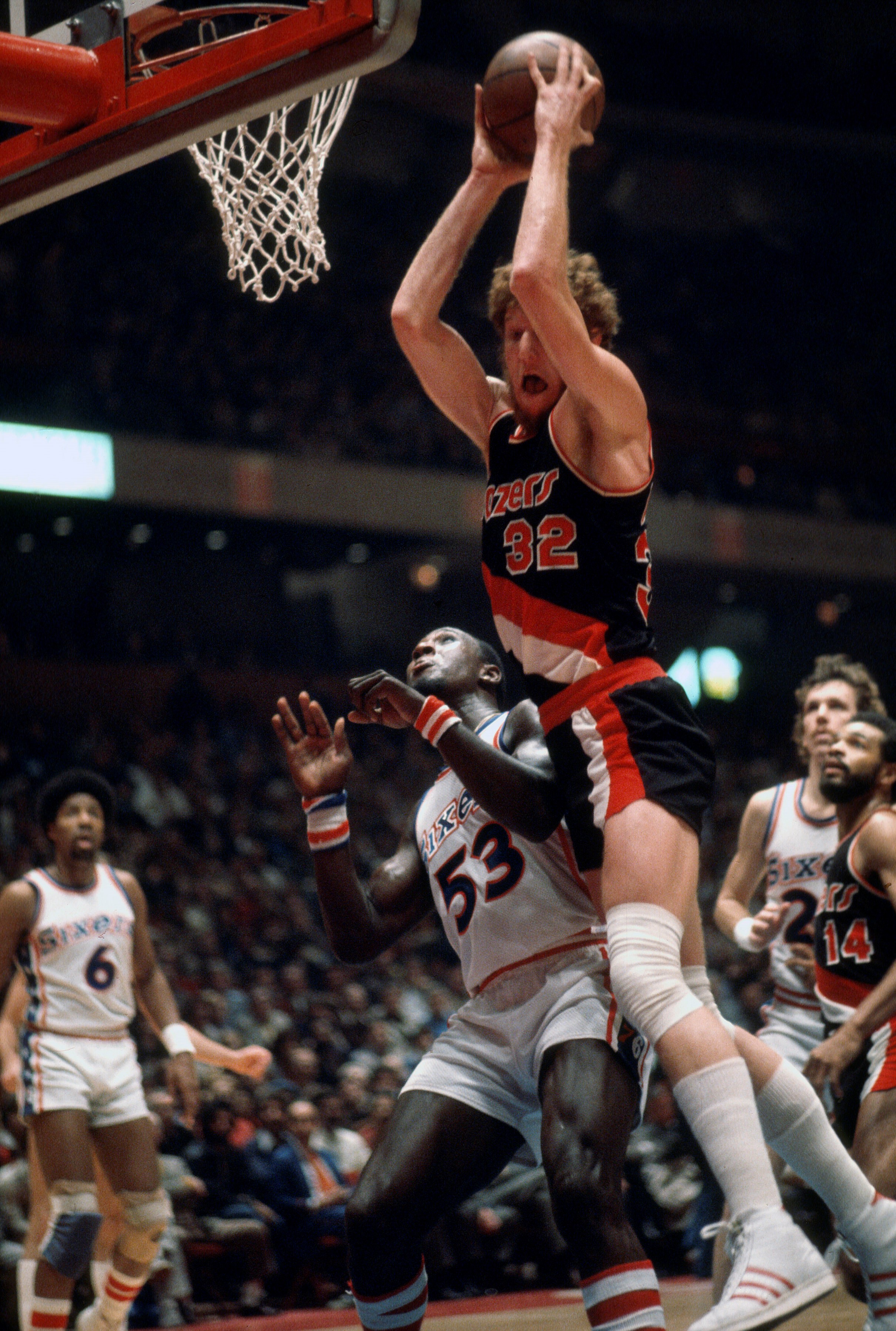
Bill Walton #32 of the Portland Trail Blazers grabs a rebound in the game against the Philadelphia 76ers at The Spectrum in Philadelphia, Pennsylvania, 1977. /VCG
Bill Walton #32 of the Portland Trail Blazers grabs a rebound in the game against the Philadelphia 76ers at The Spectrum in Philadelphia, Pennsylvania, 1977. /VCG
Then in the playoffs, Walton led Portland to knock out David "Sky Walker" Thompson and the Denver Nuggets – Thompson defeated Walton in the 1974 NCAA Final – in the Western Conference semifinals. Then in the Western Finals, he and Portland swept Kareem Abdul-Jabbar and the Los Angeles Lakers.
In the Finals that year, Walton met Julius Erving and the Philadelphia 76ers. Portland trailed 2-0 after the first two games but managed to come back with four straight wins. Walton was awarded the NBA Finals MVP.
In the following 1977-78 season, Walton played 58 games in which he averaged career-high 18.9 points, 13.2 rebounds, five assists and 2.5 blocks. The Trail Blazers finished the season 58-24 and Walton received the NBA MVP award.
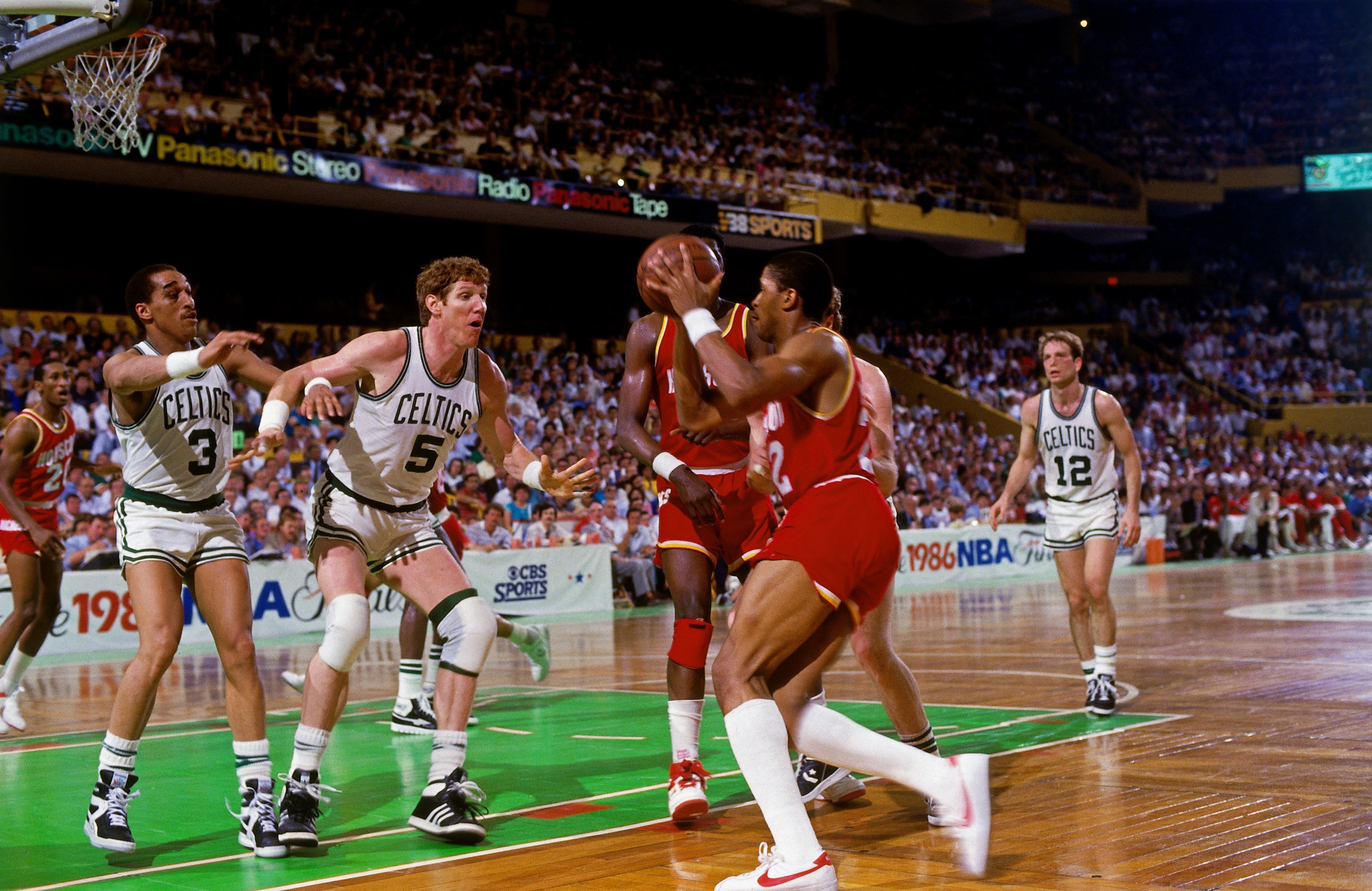
Bill Walton #5 of the Boston Celtics in the Game 6 of the NBA Finals against the Houston Rockets at the Boston Garden in Boston, Massachusetts, June 8, 1986. /VCG
Bill Walton #5 of the Boston Celtics in the Game 6 of the NBA Finals against the Houston Rockets at the Boston Garden in Boston, Massachusetts, June 8, 1986. /VCG
In 1985, he was traded to the Boston Celtics. The team had Kevin McHale and Robert Parish – both were named the Top 50 Greatest Players later – in the paint so Walton could start off the bench and played only 19.3 minutes per game. That apparently helped because he played career-record 80 games and reached 56.2 percent of FG rate. With 7.6 points, 6.8 rebounds and 2.1 assists per game, Walton was named Sixth Man of the Year. The 67-15 Celtics made the Finals and defeated the Houston Rockets led by then 23-year-old Hakeem Olajuwon. Walton received his second ring.
Noteworthy is that Walton is the only player in NBA history who pocketed the NBA MVP, the Finals MVP and the Sixth Man of the Year award.
Then in the 1986-87 season, he only played 10 games before right foot surgery put an end to his career. Injury accompanied him during his whole career, but could never eclipse his glory.